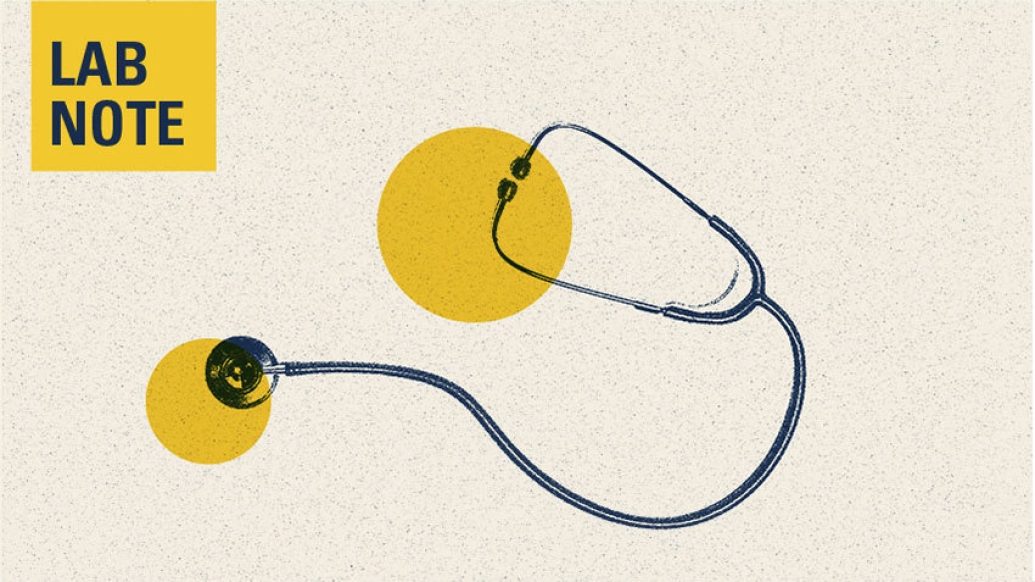Managers should involve clinicians in efforts to cut back on unneeded or unproven tasks, team says.
11:00 AM
Author |

As hospitals, clinics and health systems seek to overcome the wave of burnout and departures among their clinical staff, they might want to adopt an approach that they've used over the past decade in clinical care: choosing wisely.
That's the recommendation of a team of University of Michigan and Dartmouth College experts who call for managers overseeing health care staff to focus more on asking clinicians to spend their time on the tasks that are most needed, and reduce unnecessary or unproven work that contributes to burnout.
Writing in JAMA Health Forum, the team calls for the adoption of the same approach that the Choosing Wisely campaign has used for the past 10 years.
That campaign, founded by the American Board of Internal Medicine Foundation and embraced by medical professional societies representing many different specialties, has armed clinicians and patients with rules of thumb about which screenings, tests, scans and treatments they can safely avoid ordering for their patients due to lack of evidence that they make a difference.
When it comes to the health care workforce, they write in a new Viewpoint, the same principles could apply to administrative management practices:
-
Crowdsource: Ask clinicians to share which aspects of their electronic health record system, clinical management protocols and required administrative or training tasks eat up time without providing value.
-
Evaluate: Where possible, check the evidence behind different practices and what might happen if some of them are stopped.
-
Prioritize: Reduce the burden on clinicians by stopping, modifying
-
Work for change: If "time sucking" tasks are required by regulations, health care organizations can elevate concerns to those in a position to evaluate and potentially modify the requirements. And types of care that lack evidence for their efficacy either way could be ripe for research studies to develop evidence that could guide decisions.
"Choosing Wisely has had an incredible impact on the way we practice medicine," said Eve Kerr, M.D., M.P.H., the lead author of the piece, chief of the Division of General Medicine at Michigan Medicine and researcher who has studied the Choosing Wisely movement. "If we can apply these same principles to the way we manage the time and duties of our health care professionals, we could potentially improve workforce satisfaction and retention at a time when this is a critical issue for our nation."
Kerr and her colleagues cite the National Academy of Medicine's new National Plan for Health Workforce Well-Being and the American Medicine Association's new Saving Time Playbook as sources of specific ideas for reducing unnecessary burdens on clinicians and enhancing their well-being.
The Michigan Program on Value Enhancement, a joint effort of the U-M Institute for Healthcare Policy and Innovation and Michigan Medicine, is a good example of how researchers and clinicians can collaborate to drive change, says Kerr, who helped launch MPrOVE several years ago. The program now has a wide range of projects under way to bring evidence to our approaches for enhancing the value of clinical care, approaches that could be easily applied to improving the value of clinical work.
The other authors of the piece are Christopher Friese, Ph.D., R.N., AOCN, of the U-M School of Nursing and Joanne Conroy, M.D., of Dartmouth Health and Dartmouth College's Geisel School of Medicine.
Paper cited: "Enhancing the Value of Clinical Work—Choosing Wisely to Preserve the Clinician Workforce," JAMA Health Forum. DOI: 10.1001/jamahealthforum.2022.4018

Explore a variety of healthcare news & stories by visiting the Health Lab home page for more articles.

Department of Communication at Michigan Medicine
Want top health & research news weekly? Sign up for Health Lab’s newsletters today!





